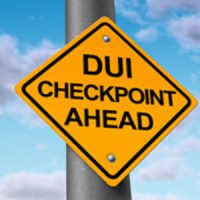Florida’s No Refusal Policy and DUI Checkpoints

If you are stopped at a DUI checkpoint in Clearwater, you may be asked to take a breath test to determine your blood alcohol content (BAC). Many drivers wonder whether they can refuse such a request.
Florida has what is commonly known as a No Refusal Policy, and it can have a major impact on your case if you are pulled over or stopped at a checkpoint. Talk with a Clearwater criminal lawyer to learn more.
What Is Florida’s No Refusal Policy?
The No Refusal Policy allows law enforcement to obtain a search warrant quickly, often electronically, when a driver refuses to take a chemical test, such as a breathalyzer. The idea behind the policy is to prevent people suspected of drunk driving from avoiding evidence collection by refusing to do testing.
In practice, this means that if you refuse a test, an officer can contact a judge right away, secure a warrant, and legally compel you to provide a breath, blood, or urine sample. This policy is particularly active during holidays and weekends when DUI checkpoints are more common in Clearwater and throughout Pinellas County.
Florida’s implied consent law states that by driving on Florida roads, you have already agreed to submit to chemical testing if lawfully arrested for DUI. Refusal has consequences, even if you are never convicted. Penalties include the following.
- First refusal. A one-year driver’s license suspension.
- Second or subsequent refusal. An 18-month suspension and potential misdemeanor criminal charge.
- Use as evidence. Prosecutors may argue your refusal shows a consciousness of guilt should your case go to court.
These penalties can affect your ability to drive to work, school, or care for your family, making it essential to understand your rights and options.
Are There Valid Reasons to Refuse?
Some drivers hesitate to take a breath test because they believe the equipment may be faulty or the results inaccurate. Others worry about health conditions that might make blowing into a breathalyzer difficult. While these concerns are real, Florida’s No Refusal Policy limits their effectiveness as defenses. Once a warrant is obtained, law enforcement can require a blood or urine test, which can provide even more evidence than a breath test.
Should you be in a situation where you were stopped at a DUI checkpoint, refused a breath test, or were compelled to provide one under the No Refusal Policy, it is important to speak with a Clearwater criminal lawyer as soon as possible. An attorney can challenge the legality of the checkpoint, question the handling of samples, and work to reduce or dismiss charges, depending on the facts of your case.
A DUI arrest in Clearwater can affect your license, your finances, and your reputation. While refusing a breath test might feel like protecting yourself, Florida’s No Refusal Policy means the decision can create additional complications.
Will legal guidance allow you to protect your future? The smartest move after an arrest is to consult the experienced attorneys at King Law Group. Contact simply reach out and schedule a confidential consultation.

